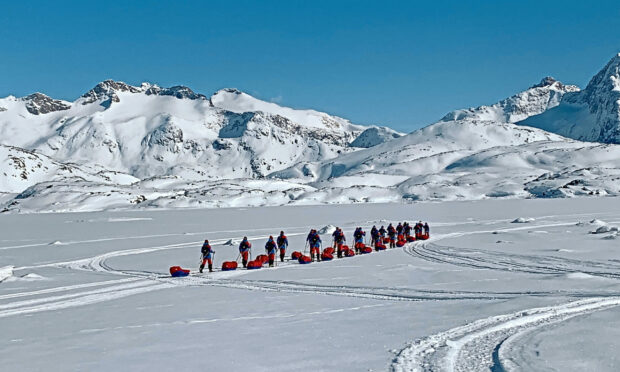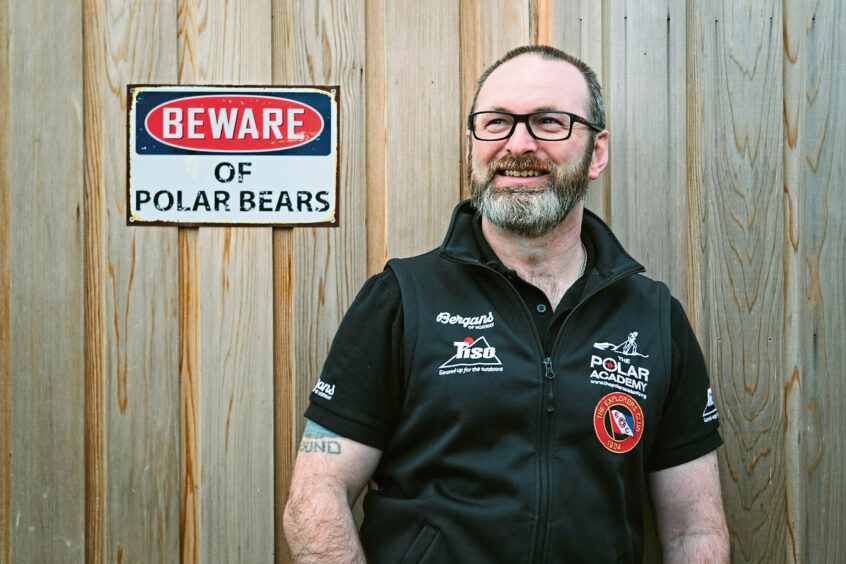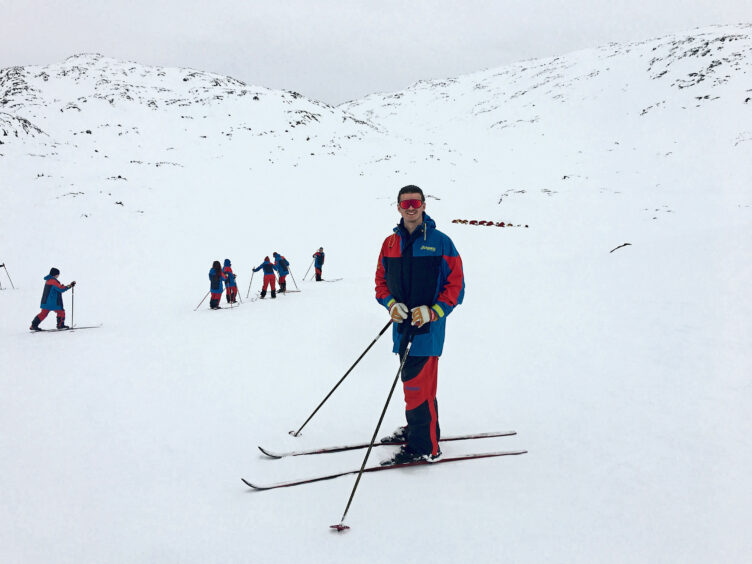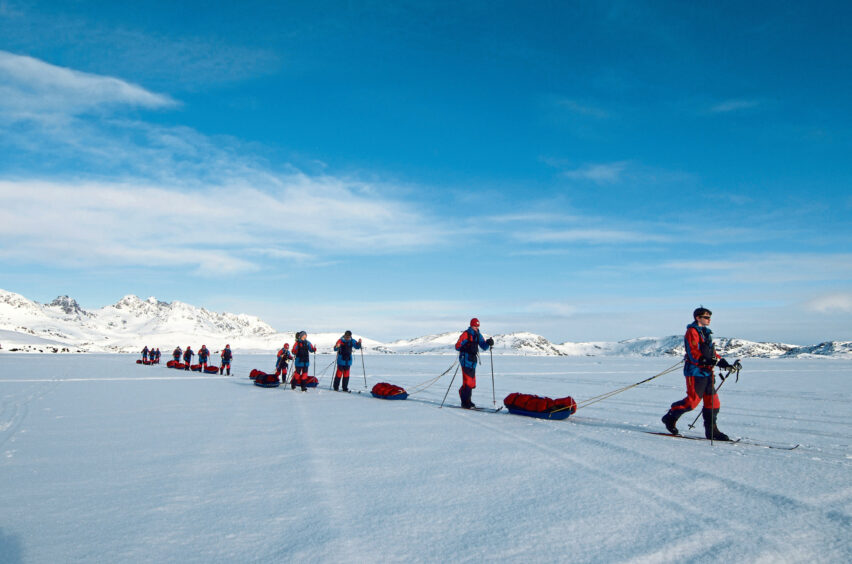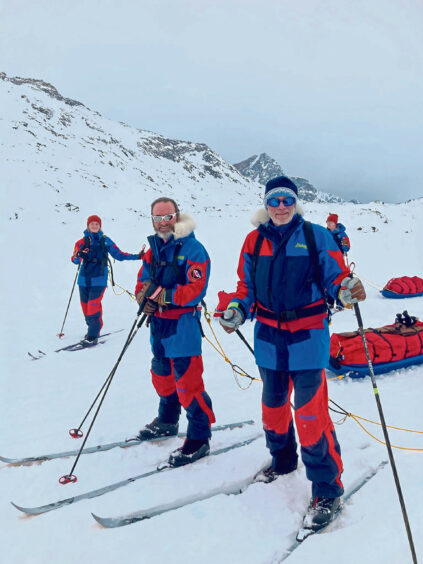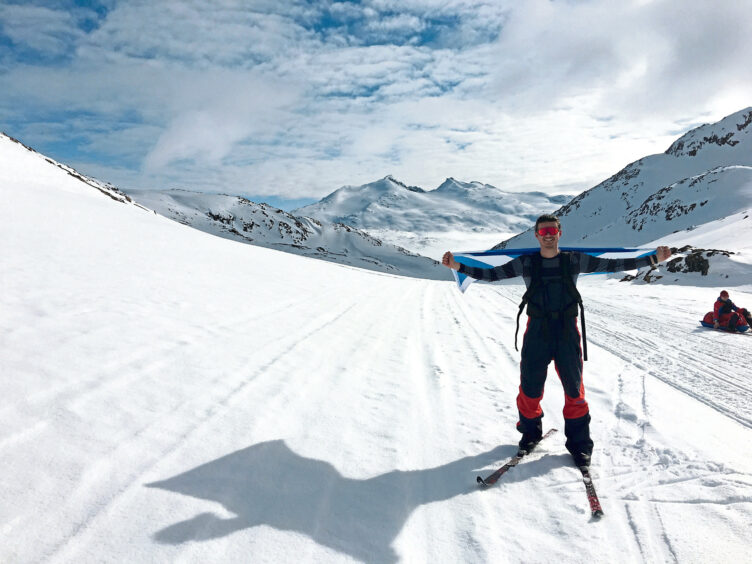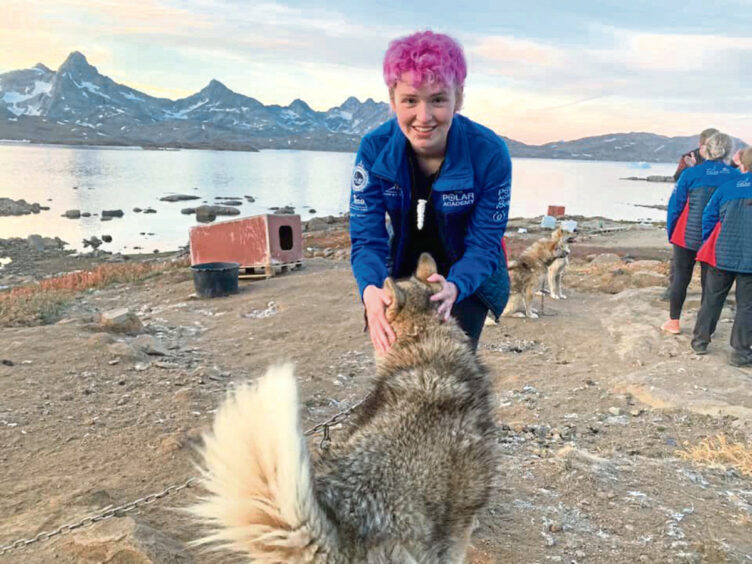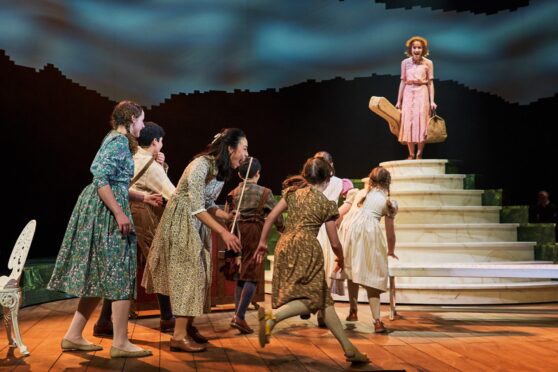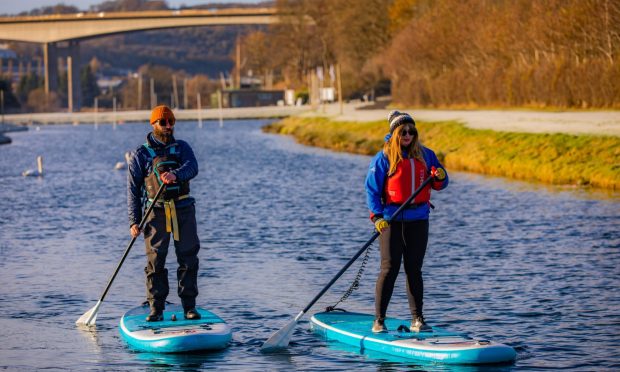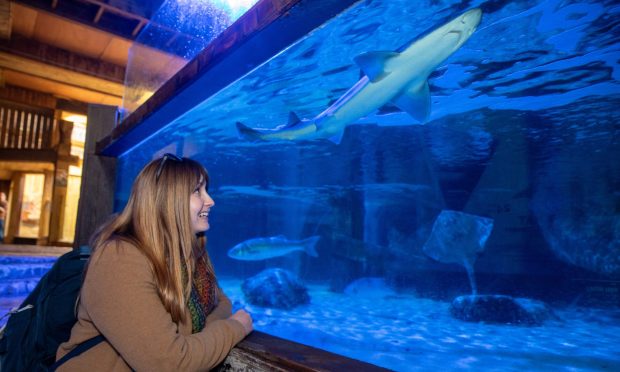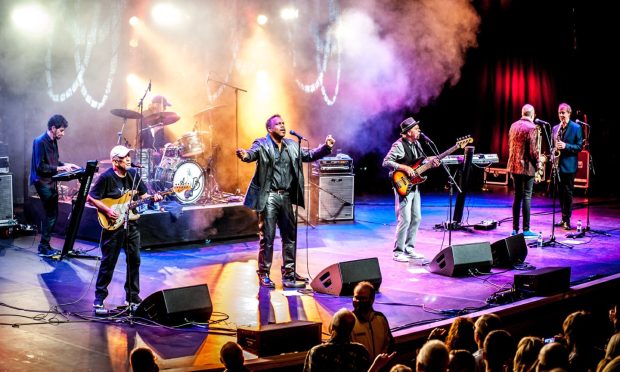Polar Academy offers teenagers struggling with low self-esteem the chance to tackle gruelling Arctic expeditions. Gayle Ritchie chats to founder Craig Mathieson.
Skiing across a snow-covered wonderland, tackling distant peaks, camping out under the Northern Lights, and meeting Inuit hunters – it’s the stuff dreams are made of.
But for hundreds of teenagers across Scotland, exploring the Arctic has become a reality, and many more are preparing to follow in their footsteps.
They’ve been given this unique, once-in-a-lifetime opportunity thanks to the Polar Academy, which was founded by West Lothian-based Craig Mathieson in October 2013.
They’re not just any teenagers, mind. These guys and girls, aged between 14 and 17, have had to go through a tough selection process before they can even think about heading in the direction of Greenland.
Craig describes pupils chosen as the ‘invisible’ ones – those crushed by a lack of self-esteem, perhaps victims of bullying or abuse.
However, by the end of the tough programme, Craig says their lives are completely transformed.
Lecture series
Ahead of their next expedition – to East Greenland in March – Craig, who is the Royal Scottish Geographical Society’s Explorer-in-Residence, is giving a series of lectures, including in Dundee, Dunfermline and Aberdeen.
He’ll share the stage with Polar Academy graduate Lauren Calley, 17, from Fife, and 21-year-old trainee guide Arran Goddard.
The trio will talk about their intensive training for expeditions, the magic of the expeditions themselves, and how working with the academy has changed their lives and redefined their mental and physical limits.
Sharing stories
Having served in the Gulf War and embarked on expeditions to the North and South Pole, Craig was keen to share stories of his expeditions with school kids up and down the country.
It was seeing their faces staring back at him that inspired him to launch Polar Academy.
“I realised they were thinking they’d never be able to do anything like that – the expeditions seemed like an impossible dream, something they could never achieve,” he reflects.
“I saw a lack of belief and confidence. That got me thinking what I could do to help. And that led to the launch of Polar Academy.
“Essentially, the expeditions we run totally change them. Once the kids realise what they can achieve, they realise they can do anything.
“Barriers lift and opportunities are created.”
Tough selection process
A group of 10 schoolchildren are selected to train for the winter expedition, with another five forming a reserve team.
They meet up with another team from a nearby school for months of intense fitness training, including gym sessions and hiking trips.
They head outdoors to learn navigation, camping and survival skills, often in the Cairngorms, and towards the end of their training they pull tyres during walks – up hills, across sand, and through the sea.
Their fitness is raised to athlete level so that as they near the end of the strict regime, they’re super strong in body and mind.
“The training is unapologetically demanding with the goals set often being beyond what most can dream of – our kids always succeed,” says Craig.
Greenland
They then fly to a remote area of Greenland where they pull sledges containing their kit and work as a team to complete a 75-mile skiing tour over 10 days.
They cook and feed themselves, haul the sleighs and pitch their own tents.
“We afford them a huge amount of trust and responsibility and they never let us down,” says Bo’Ness-based Craig.
“Every day they appoint a new leader who navigates the team. They might see a mountain on the horizon they want to explore, or they might go out to sea ice. It’s their expedition so it’s up to them.
“There’s also a science element to expeditions, and we’ve teamed up with Oxford and Cambridge Universities on a programme looking at climate change and endangered species.”
Raising awareness
After they return home, they tour Scottish schools, giving talks to pupils, sharing stories of their adventures, and raising awareness of the programme.
“They talk about how they’ve changed, about how all the dark stuff in their lives lifted after an old hippy started talking about skiing in the Arctic, seeing the Northern Lights and meeting Inuit hunters,” says Craig.
“They come away from the experience totally different human beings and it’s so inspiring to witness their growing self-belief and confidence.
Without borders
It’s not just Arctic adventures Polar Academy students take on.
In 2021 they swapped sledges and snowshoes for oars and a longboat after their planned Arctic expedition was postponed due to the Covid-19 pandemic.
Students from Bell Baxter High in Cupar paddled up the Great Glen in the traditional wooden birlinn – the Scottish equivalent of a Viking longboat. The 60-mile trip, from Fort William to Inverness, took five days.
Essentially, the expeditions we run totally change them. Once the kids realise what they can achieve, they realise they can do anything.”
Craig has exciting expansion plans for Polar Academy, and hopes to set up a Scandinavian offering, possibly in Finland or Norway, as well as in England.
“Borders mean nothing,” he says.
“I get so many emails from people keen to get involved and I’ve been asked to do a Polar Academy in America.
“I might do this further down the line, but I’ll always keep Scotland as the flagship.”
Deep in training
Right now, kids are deep in training, having been given the festive period as “time off”, with Craig advising them to “sit down and eat and get some weight on” over Christmas.
“I said they could eat a whole selection box in one go if they wanted! I told them to eat like machines because they’ve got an endurance weekend coming up in January.
“They’ll be hauling tyres up and down hills in the Trossachs for eight or nine hour stints.”
It’s not easy selecting such a small number of kids to take part, says Craig: he wishes he could help many more.
Broken and invisible
“So many kids feel broken and invisible and that they’ve no escape from how they’re feeling,” he reflects.
“It’s such a sad state. I’d love to see just 50 kids put their names forward but the reality is we get hundreds.
“There’s a tsunami of mental health issues out there among kids and Polar Academy deals with issues lots of organisations shy away from.
“Many kids have had major traumas, whether bereavement, abuse, or neglect, and have tried and failed to get help. We don’t claim to be social workers but we go down the results route.
“If you ask any kid how they’re feeling, the chances are they’ll say, ‘I’m fine’, and that’s the end of it. But we can work with them for a year to get to the real reasons why they’re struggling.
“We continually show them they’re better than they think. Their confidence goes up, their ability goes up, and this cascades into family life.”
There’s a tsunami of mental health issues out there among kids and Polar Academy deals with issues lots of organisations shy away from.”
Building leaders and role models
While Polar Academy has the expedition as the “end goal”, Craig says the focus is on building kids into leaders and role models who can inspire thousands of other young people to reach their potential.
“It’s about helping them to be the person they’re dreaming about – that confident pupil who’s not scared of the world or being dragged down by demons in their head.
“They just want to be clear, happy and confident. And the way they do that is through the expedition.
“In their eyes it’s almost impossible to imagine themselves doing this – going into the High Arctic in winter to ski, pull sledges and explore.
“Then they realise that if they can do this – and they do – anything is possible in life.”
The Polar Academy has forged a strong partnership with Greenlandic communities, and brought back a group of Greenlandic children to Scotland in summer.
“Most of the kids had never been out of their village so we showed them round Scotland, taking them walks and canoeing,” says Craig.
“The top thing they wanted to see was trees – and go to a football match! They were blown away by the number of people.
“When they went back to Greenland, they talked about their experiences, and girls relayed the message that girls in Scotland can do all sorts of jobs.
“It was good to give them the confidence to think they themselves could be doctors or pilots.
“Ultimately, it’s all about hope and self-belief. And that’s the Polar Academy’s mantra.”
- Craig is the RSGS’s Explorer-in-Residence and a committee member of The Explorers’ Club.
- His RSGS Inspiration Through Exploring lectures take place at Aberdeen University on January 9, Dundee University on January 10, Dunfermline High School on January 11, Glasgow’s Blythswood Hall on January 12 and Edinburgh University, also on January 12. For more details and to book see rsgs.org
